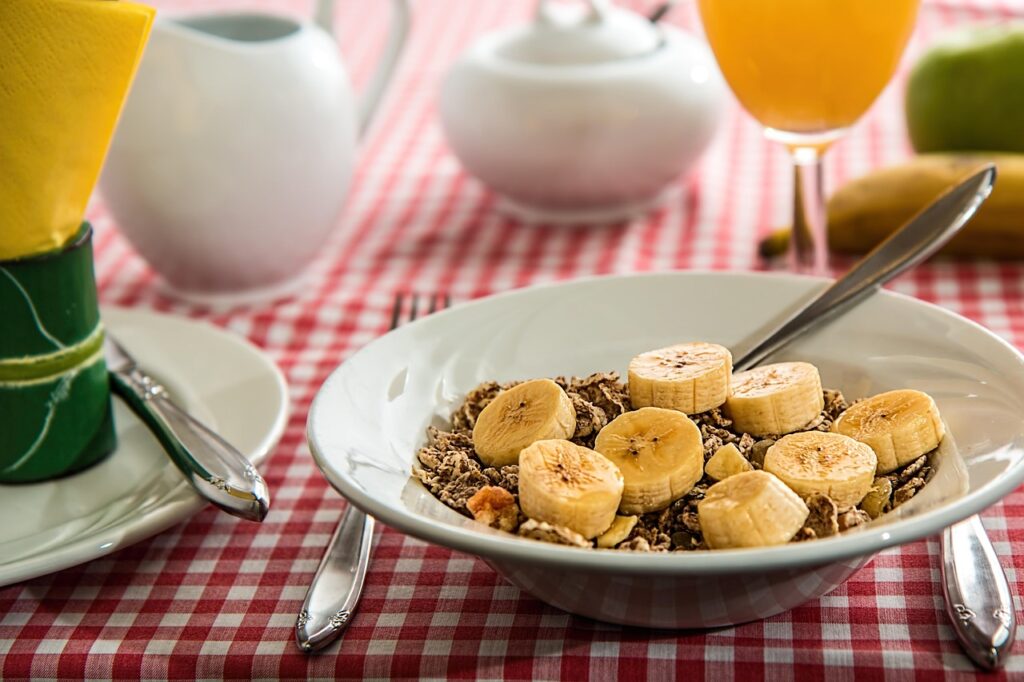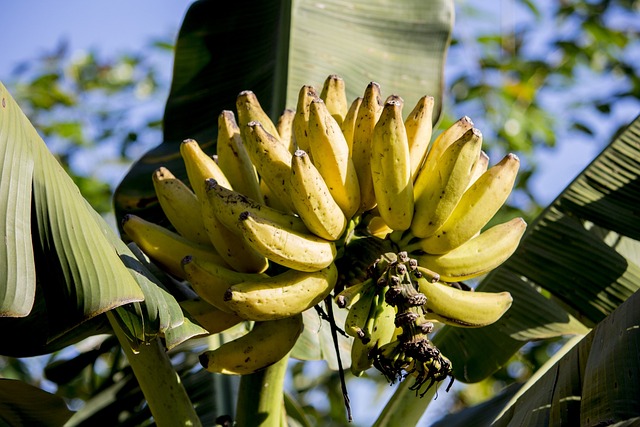
A Brief History and Origin of Banana Nutrition
Bananas are among the oldest crops, their history spanning more than 7,000 years. Native to Southeast Asia, bananas spread across trade routes into Africa, India, and eventually the Americas. Today, they are consumed globally in a variety of forms, from fresh fruit to baked desserts.
Global Consumption and Popularity
Bananas are the most consumed fruit worldwide, featuring as a staple in many countries’ diets. The typical person in the U.S. eats around 27 pounds of bananas per year, showcasing their popularity worldwide.
Overview of Banana Varieties
Though the Cavendish banana dominates the markets of the world, there are over 1,000 varieties. Some, like plantains, are starchier and designed to be prepared, while others are dessert bananas. Each variety gives a slightly different profile of banana nutrition.
Banana Nutritional Profile
Bananas as a Source of Vitamins and Minerals
Bananas are a nutrient powerhouse, packed with:
- Vitamin C – assists in immunity and collagen production.
- Vitamin B6 – for brain function and metabolism.
- Potassium – for blood pressure and heart function.
- Magnesium – for muscle and nerve function.
Macronutrient Composition

A medium banana contains:
- Carbohydrates:
~27g (mainly natural sugars for energy) - Fiber:
~3g (encourages digestion and satiety) - Protein:
~1.3g - Fat:
<0.5g
This makes bananas an ideal energy food with low fat but high in key nutrients.
Comparison with Other Fruits
Bananas have more potassium and vitamin B6 than apples but a little less vitamin C. Bananas are also less difficult to digest than oranges and so are the fruit of choice for athletes and individuals with sensitive stomachs.
Health Benefits of Bananas
Digestive Health and Fiber Benefits
Bananas contain soluble fiber (pectin), which regulates bowel movements and has a positive effect on gut health. Green bananas’ resistant starch is also a prebiotic, which feeds healthy gut bacteria.
Energy Boost and Athletic Performance
Because of their natural sugars (fructose, glucose, and sucrose), bananas give quick but sustained energy, hence being an ideal pre- and post-workout snack.
Cardiac Health and Potassium
Banana nutrition is particularly valued for potassium, a mineral that reduces blood pressure, maintains electrolytes, and reduces the risk of stroke.
Weight Management with Bananas
Low-Calorie Ingredient and Feeling of Fullness
A single medium banana has only 105 calories and is therefore an efficient low-calorie snack.
Dietary Fiber’s Contribution to Slimming
The fiber in banana nutrition slows down digestion, keeping you full for longer and less likely to indulge in poor food choices.
Healthy Banana Snack Options
- Almond butter and banana
- Banana “ice cream” made from a frozen banana
- Sliced banana topped with oats or yogurt
Bananas in Sports Nutrition
Ideal Quick Energy Source for Sportsmen
Bananas provide easily digestible carbs, thus acting as a natural sport fuel.
Electrolyte Replacement
During prolonged exercise, electrolytes like potassium and magnesium are lost through sweat. Eating bananas helps to replenish these essential minerals.
Simple Banana-Based Recipes for Sportspersons
- Banana oatmeal shake
- Peanut butter banana sandwich
- Banana energy bites made with oats and honey
Bananas and Mood Enhancement
Nutrients that Affect Mental Health
Bananas contain high amounts of tryptophan, which the body converts into serotonin, a “feel-good” neurotransmitter.
Serotonin Production and Bananas
Bananas lack serotonin in themselves, yet their ingredients (vitamin B6 and tryptophan) aid in serotonin production, level mood.
Snack Ideas for Mood Boosts
- Banana and dark chocolate
- Spinach and nut milk banana smoothie
- Banana and walnuts (omega-3 enriched)
Uses of Bananas in Cooking
Tasty Banana Recipes
- Banana bread
- Banana pancakes
- Banana smoothies
Savory Uses in Creative Ways
Fried, baked, or boiled plantains are widely used in various cultures. Green bananas can also be used in curries or soups.
Preservation Methods
- Freezing: Best for smoothies.
- Dehydrating: Produces banana chips.
- Canning: Banana jams or spreads.
Environmental Impact of Banana Production
Sustainable Farming Practices
Monoculture and the use of pesticides threaten banana cultivation. A shift to organic and diversified farming helps conserve ecosystems.
Fair Trade and Ethical Sourcing
Buying Fair Trade bananas gives farmers improved wages and working conditions.
Challenges Faced by Banana Growers
Pests, Panama disease, and climate change are threats to global banana production.
Choosing and Storing Bananas
Tips for Selecting Ripe Bananas
- Green bananas = firm and starchy.
- Yellow bananas = ready to eat and sweet.
- Speckled bananas = ideal for baking.
Optimal Storage Techniques
Store bananas at room temperature. To retard ripening, refrigerate or keep them separate once they are ripe enough.
Methods of Ripening
Store bananas with an apple in a paper bag to hasten ripening naturally.
Conclusion: Accepting Bananas as Part of a Healthy Diet
Synopsis of Banana Nutrition Advantages
From digestive health and heart health to sport performance and mood, bananas are a true nutritional powerhouse.
Putting Bananas in Your Daily Diet
Slice them up and serve them with smoothies, breakfast bowls, or even main courses for a healthy, all-purpose food.
Final Word on Banana Nutrition
Banana nutrition is a reminder that sometimes the lesser fruits are the strongest. By adding bananas to your daily diet, you are promoting energy, health, and sustainability all in an affordable package.
